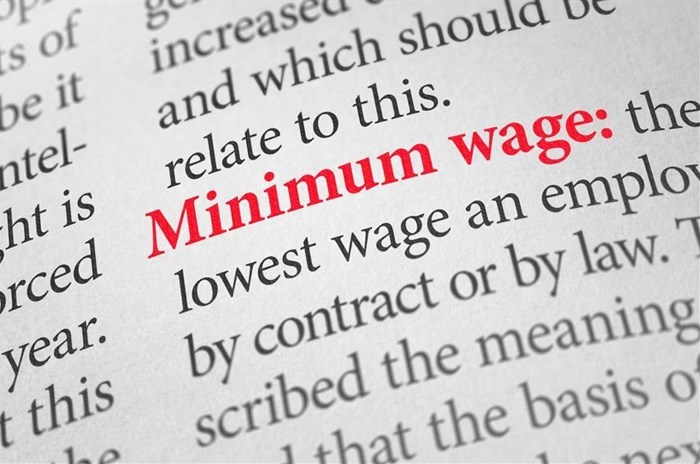Is the new minimum wage sustainable... for employees?

“8.5% might sound a lot, but you need to consider that it translates to just R2 per hour,” points out Meyer, who also chairs the Living Wage South Africa Network.
Meyer is a staunch promoter of the living wage concept that is gaining popularity in many countries. She recently returned from India where she attended meetings with living wage proponents from around the globe. Among these were members of the International Labour Organisation (ILO), whose governing body just endorsed living wages as central to economic and social development. It means that ILO employer, government and worker representatives agree that living wages need to be part of labour standards in ILO member countries - among them South Africa.
Living wage vs minimum wage
Meyer says a living wage is remuneration that is sufficient for an individual to provide their family with the basic necessities of life, allows them to save, and thus cover unexpected emergencies. The required amount should be based on evidence.
While legislated minimum wages compel companies to pay workers not less than the prescribed amount, they seldom satisfy Living Wage criteria. "A person labouring at minimum wage for nine hours a day over the typical 22 working days per month stands to earn less than R5,500," says Meyer. She notes that this is hardly enough to survive, and affords little chance of a decent, healthy or happy lifestyle. “A job paying minimum wage keeps people in poverty. As an employer, I need to be aware that I actively prevent people from a dignified life.”
A sustainability concern
Over the last decade, corporate sustainability reporting has been gaining momentum, the core focus is typically on ESG – environmental, social and governance concerns.
Such reporting allows organisations to be transparent with the public about their impact on people, planet and prosperity within their operational ecosystem, as well as their integrity as a going concern.
ESG frameworks assume that prosperity not only refers to the profit a company makes but also to how it improves or degrades the economic conditions of the community within which it operates. This includes the financial well-being of its workers.
While some have decried the latest minimum wage increase as too costly and likely to raise unemployment, paying employees humanely attracts investment.
In a world where tempers run high on social concerns, a good report can work in an organisation's favour, while a bad report can adversely affect their share price and investors.
"A company cannot be earnest about good ESG while its workers remain living in poverty even though they are employed," says Meyer.
Scaling up to a living wage
Unlike the legally enforced minimum wage, a living wage is meant to be adopted voluntarily by employers as an act of human decency.
"It demonstrates that the employer is genuinely concerned about their workers' constitutional right to dignity and not just checking a compliance box," says Meyer. “Pay is not just an amount, it also communicates to the employee how they are seen and valued as human beings by their employer.”
She says this demands a mindset shift from profits at all costs to profits resulting from recognising workers as fellow human beings whose personal economic enrichment contributes to the national economy's sustainability. Living wages increase buying power, and thus create a stronger market. Research suggests that offering decent working conditions, including decent pay, leads to economic growth. “Unlike often believed we do not require economic growth first to create jobs,” Meyer asserts.
Living wages have been successfully implemented in other countries, such as the UK and New Zealand, with little impact on profits or employment opportunities.
Living wage estimation
Meyer started conducting independent research to determine a living wage range in South Africa. For the past two years, she asked workers across the country about their current income and the degree of choice they experienced in a variety of life domains. Through this her research group has estimated an ideal living wage for South Africa at between R12,000 to R15,000 per month. She emphasizes that this is the cash amount required, exclusive of potential non-monetary contributions made by an employer.
"We realise this is quite a leap and that organisations need time to gradually implement it, but when approached as a strategic imperative, it is as possible as any other business endeavour," says Meyer. “And there are companies in South Africa who have started doing so.”



































